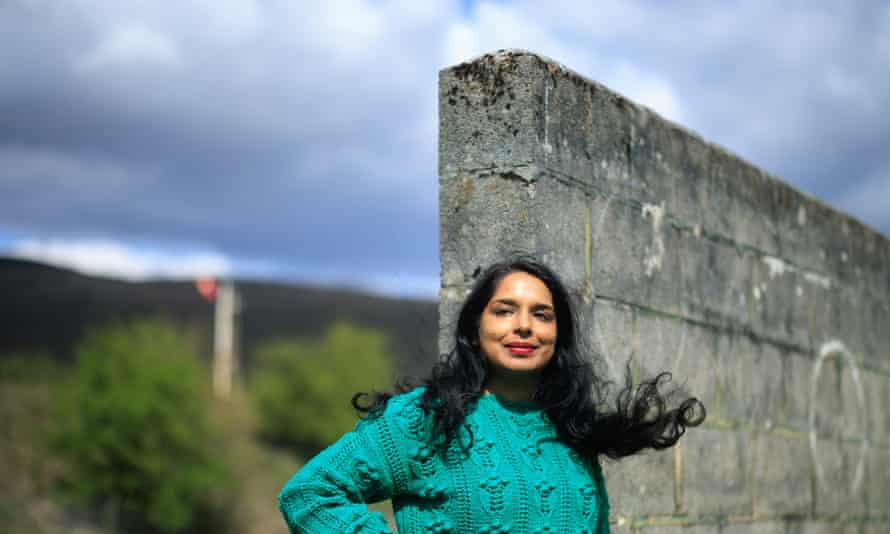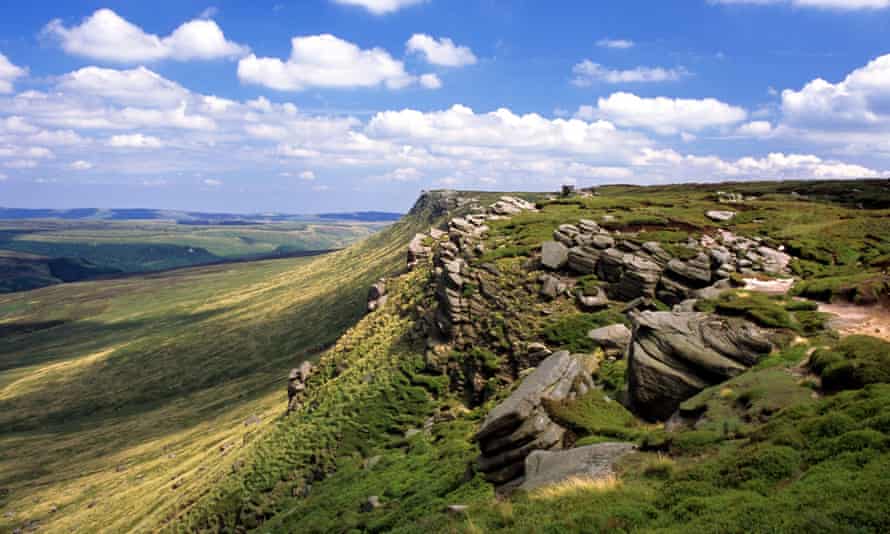Ninety years ago, the Kinder Scout mass trespass took place, a protest on the highest point in the Peak District in which walkers mainly from Greater Manchester trespassed en masse calling for greater access to the moorlands.
The mass trespass was instrumental in leading to the passage of national parks legislation and helped pave the way for the establishment of Britain’s first long-distance footpath, the Pennine Way. But the dreams of those trespassers have still not been fulfilled. In 2000 the Countryside and Rights of Way Act established a partial right to roam in England and Wales, yet it covers just 8% of England, with the rest still privately owned and inaccessible to the public. This month the government quashed a review of the right to roam in England’s countryside. The environment minister Rebecca Pow says there are no plans to release results of the review, a decision condemned by campaigners. Speaking on Saturday at a memorial event in Hayfield, Caroline Lucas, the Green party MP for Brighton Pavilion, said the decision was “disappointing” and “frankly shameful”.

The historic event of the Kinder mass trespass parallels issues of access to the great outdoors that are now faced by people of colour and those from working-class backgrounds. The British countryside is demographically more white than cities, with a Natural England study showing that only 1% of visitors to national parks are from BAME backgrounds. A 2019 Defra landscapes review of national parks and areas of outstanding natural beauty (AONB) said: “It has felt as if national parks are an exclusive, mainly white, mainly middle‐class club.” The review proposed systemic reform of the governance of national park and AONB boards, stating that only a “tiny fraction” on such boards were of black, Asian or minority ethnicities. A research report by the Countryside Charity revealed the gulf between socially deprived areas and the countryside, highlighting issues such as poor public transport as barriers in access.
The first time I walked in the footsteps of the Kinder Scout mass trespassers, known as the Manchester Ramblers, was after being racially abused on a TransPennine journey by a man who told me to go back to where I’m from – and so I did: I’m from the north and decided to make a journey of reclamation walking the Pennine Way.
I once again walk up Kinder Scout, this time one of a group of ramblers joining the Kinder in Colour walk, an initiative commemorating the mass trespass and highlighting the issues of inequality and inaccessibility that still remain, bringing people of colour to walk together. The event organisers include Sam Siva, also an organiser with Land in Our Names, a land racial justice collective, and Nadia Shaikh who describes the event as a “coalition”, bringing together other groups campaigning for better access to the countryside including Muslim Hikers, Black Girls Hike, Land in Our Names, Right to Roam and Landscapes of Freedom.

The event centres on ritual and healing. “We want to heal the land and ourselves,” say the organisers. “We want to share space so that our joy, healing and resistances are infused with the same spirituality that we feel when we connect to the land.”
The history of the countryside is rooted in colonialism, class and exclusion. The walk seeks to change that. Shaikh says accessibility has been considered in the planning: the starting point for the 3km circular walk, for example, is in Edale, taking into account the fact there is a train station there.
Anant, from Manchester, who is also part of the Mad Walkers and Manchester Walkers groups, believes more minority ethnic people should be encouraged to come out walking in the great outdoors. I walk with people of all ages, including a family with young children who are climbing a mountain for the first time. I speak to people from Survivor Alliance who tell me: “We love going out. We’re healing and recovering from the traumas we went through. When we are out we feel free. It’s amazing to meet people and enjoy nature”.
As we walk, there is hope and defiance in the air that the dreams of the brave trespassers for access to nature for all might yet be realised.
Stay connected with us on social media platform for instant update click here to join our Twitter, & Facebook
We are now on Telegram. Click here to join our channel (@TechiUpdate) and stay updated with the latest Technology headlines.
For all the latest Lifestyle News Click Here
